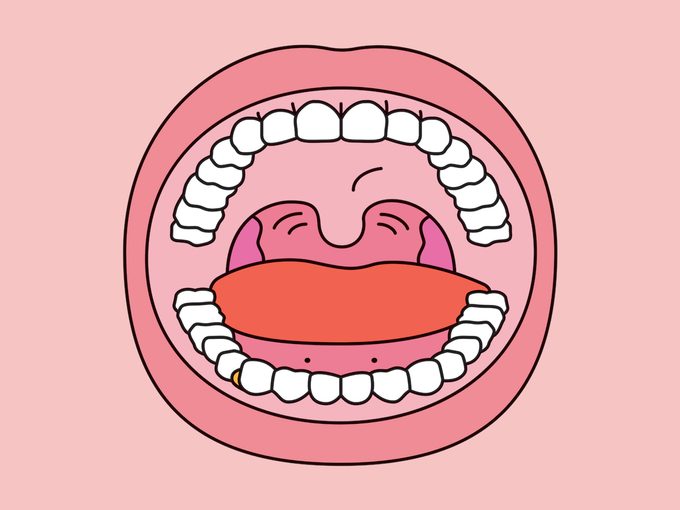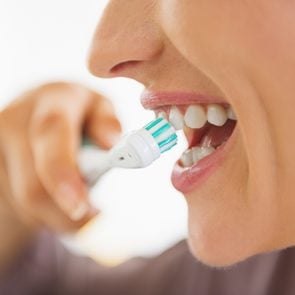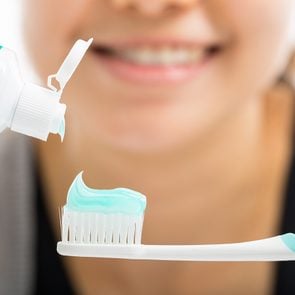Sneaky Reasons You’ve Got Bad Breath (And How to Deal With It)
The best way to beat bad breath is to stamp it out at its source.

What Causes Bad Breath?
Tartar
Missed dentist appointments can lead to a buildup of bacteria that mixes with sugars and starches, creating a film called plaque. If it’s not removed, it can harden into tartar, which can collect between the gums and teeth and lead not only to bad breath but also infection, loss of tissue and bone and, eventually, tooth loss. After the age of 30, approximately seven in 10 Canadians suffer from gum disease, but the mildest form—gingivitis—can be reversed by seeking more regular dental care.
Tongue Bacteria
Eighty to 90 percent of bad breath is caused by bacteria living on the tongue. These organisms, which feast on food particles stuck between the teeth and in the grooves and crevices of the tongue, excrete sulphur compounds as they digest, which let off a foul smell. You already know the solution to this: brush and floss every day.
Infected Tonsils
Our tonsils help us fight off viral and bacterial infection, but they can become infected themselves. Tonsillitis and even tonsil stones—calcium deposits created by food particles and dead bacteria—can cause bad breath. Some people may turn to breath mints and mouthwash, but Aaron Burry, deputy CEO of the Canadian Dental Association, cautions that the sugar from mints can provide more sustenance for bacteria. Meanwhile, mouthwash can remove all bacteria, both good and bad, which can upset the balance of the mouth if overused. Instead, gargling with warm water and half a teaspoon of salt can help dislodge the stones.
Dry Mouth
We’ve all known someone (or been someone) with “morning breath.” While asleep, our salivary glands decrease saliva production to prevent excessive swallowing or drooling, but this can also lead to a dryer mouth—especially if we snore or breathe through our mouth. Saliva is our mouth’s natural bacteria killer; when there isn’t enough of it, bacteria reproduce and feed freely, emitting those pungent sulphur compounds that are the main component of bad breath. Burry recommends drinking more water during the day and limiting consumption of caffeine and alcohol, which are dehydrating. Chewing sugar-free gum for 15 to 20 minutes can also help activate salivary glands.
Now that you know what causes bad breath, find out seven signs of disease your teeth can reveal.






